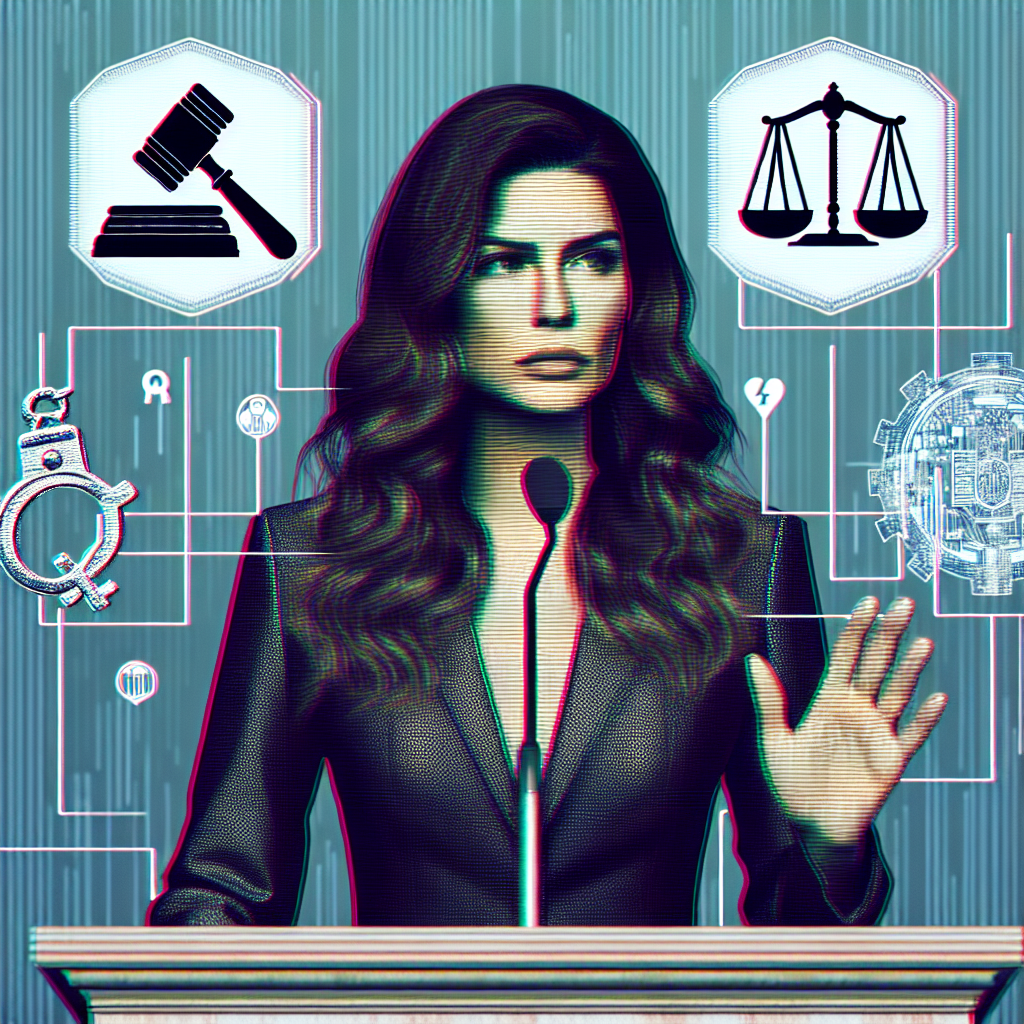AI Antisemitism and Celebrity Critique Scarlett Johanssons Call for Regulation

AI Antisemitism and Celebrity Critique: Scarlett Johansson's Call for Regulation
The proliferation of artificial intelligence (AI) technologies presents a complex web of ethical and legal challenges, particularly concerning the exploitation of individual likeness and the potential for misuse in propagating hate speech and misinformation. Actress Scarlett Johansson's recent call for AI regulation stems from a particularly disturbing incident: her digitally synthesized likeness was employed in an antisemitic video, highlighting the urgent need for safeguards against the weaponization of AI in promoting prejudice and malicious content.
This incident involving Johansson is not an isolated case. Deepfakes and AI-generated content are becoming increasingly sophisticated and readily accessible, making it easier than ever to create convincing yet entirely fabricated videos and audio recordings. While some applications of this technology are harmless or even beneficial, such as creating special effects in movies or restoring old films, the potential for abuse is undeniable. When AI is used to impersonate individuals without their consent and in contexts that promote hate speech or spread false information, it raises serious ethical and legal questions that demand immediate attention.
The antisemitic video featuring the AI-generated likeness of Johansson is especially troubling because it leverages the celebrity's public image to lend credibility and reach to hateful ideology. Antisemitism, a historically persistent and virulent form of prejudice against Jewish people, has seen a resurgence in recent years, fueled in part by online platforms and the anonymity they afford. The use of AI to create and disseminate antisemitic content represents a dangerous escalation, allowing hate groups to amplify their message and target individuals and communities with greater efficiency.
Johansson's response to the incident underscores the vulnerability of celebrities to AI-driven impersonation. While celebrities may have a degree of control over their image and brand, the ease with which AI can replicate their likeness makes it exceedingly difficult to prevent unauthorized and malicious uses. This raises concerns about the legal remedies available to individuals whose likeness is exploited in this manner. Existing intellectual property laws may offer some protection, but they are often inadequate to address the specific challenges posed by AI-generated content, particularly when the content is created and disseminated across borders.
The call for AI regulation by Johansson and others reflects a growing recognition that existing legal frameworks are ill-equipped to handle the rapid advancements in AI technology. Many argue that new laws are needed to define the rights of individuals with respect to their digital likeness, to establish clear guidelines for the development and deployment of AI systems, and to hold accountable those who misuse AI to create and disseminate harmful content. These regulations should address issues such as consent, transparency, and liability. For instance, AI systems used to generate realistic human faces or voices should be required to disclose that the content is artificially generated. Furthermore, individuals or organizations that use AI to create and spread hate speech or misinformation should be held legally responsible for their actions.
However, striking the right balance between protecting individual rights and fostering innovation in the AI sector is a significant challenge. Overly restrictive regulations could stifle technological progress and limit the potential benefits of AI in various fields. Therefore, any regulatory framework must be carefully crafted to address the specific harms posed by AI while avoiding unintended consequences. This requires a collaborative effort involving policymakers, technologists, legal experts, and members of the public.
Furthermore, the problem of AI-driven hate speech extends beyond legal solutions. Social media platforms and other online service providers have a responsibility to actively combat the spread of antisemitism and other forms of prejudice on their platforms. This includes investing in AI-powered tools to detect and remove hateful content, implementing stricter policies against hate speech, and providing users with the resources and support they need to report and address instances of online harassment. Education and awareness campaigns are also crucial to combatting the underlying prejudices that fuel antisemitism and other forms of hate.
The situation involving Scarlett Johansson serves as a stark reminder of the potential dangers of unchecked AI development. As AI technology continues to evolve, it is essential that we address the ethical and legal challenges it poses with urgency and diligence. By working together to develop appropriate regulations, promote responsible use of AI, and combat hate speech in all its forms, we can mitigate the risks and ensure that AI is used to benefit society as a whole.
The long-term implications of the AI revolution are still unfolding, and the incident with Johansson underscores the importance of proactive engagement. Legal scholars and ethicists are actively debating the best course of action, considering models that range from strict licensing of AI technologies to more flexible frameworks that emphasize accountability and transparency. The debate also touches on the potential for AI to be used as a tool for good in combating hate speech, such as by identifying and flagging potentially offensive content or by providing counter-narratives to challenge hateful ideologies.
Ultimately, addressing the challenges posed by AI antisemitism and other forms of AI-driven harm requires a multi-faceted approach that combines legal regulation, technological innovation, and societal education. It is a complex and evolving issue that demands ongoing attention and collaboration from all stakeholders.
Read more at https://allaboutblockchain.xyz/post/ai-antisemitism-and-celebrity-critique-scarlett-johanssons-call-for-regulation/
Disclaimer: The information on this article and the links provided are for general information only and should not constitute any financial or investment advice. I strongly recommend you to conduct your own research or consult a qualified investment advisor before making any financial decisions. I am not responsible for any loss caused by any information provided directly or indirectly on this website.
Comments
Post a Comment